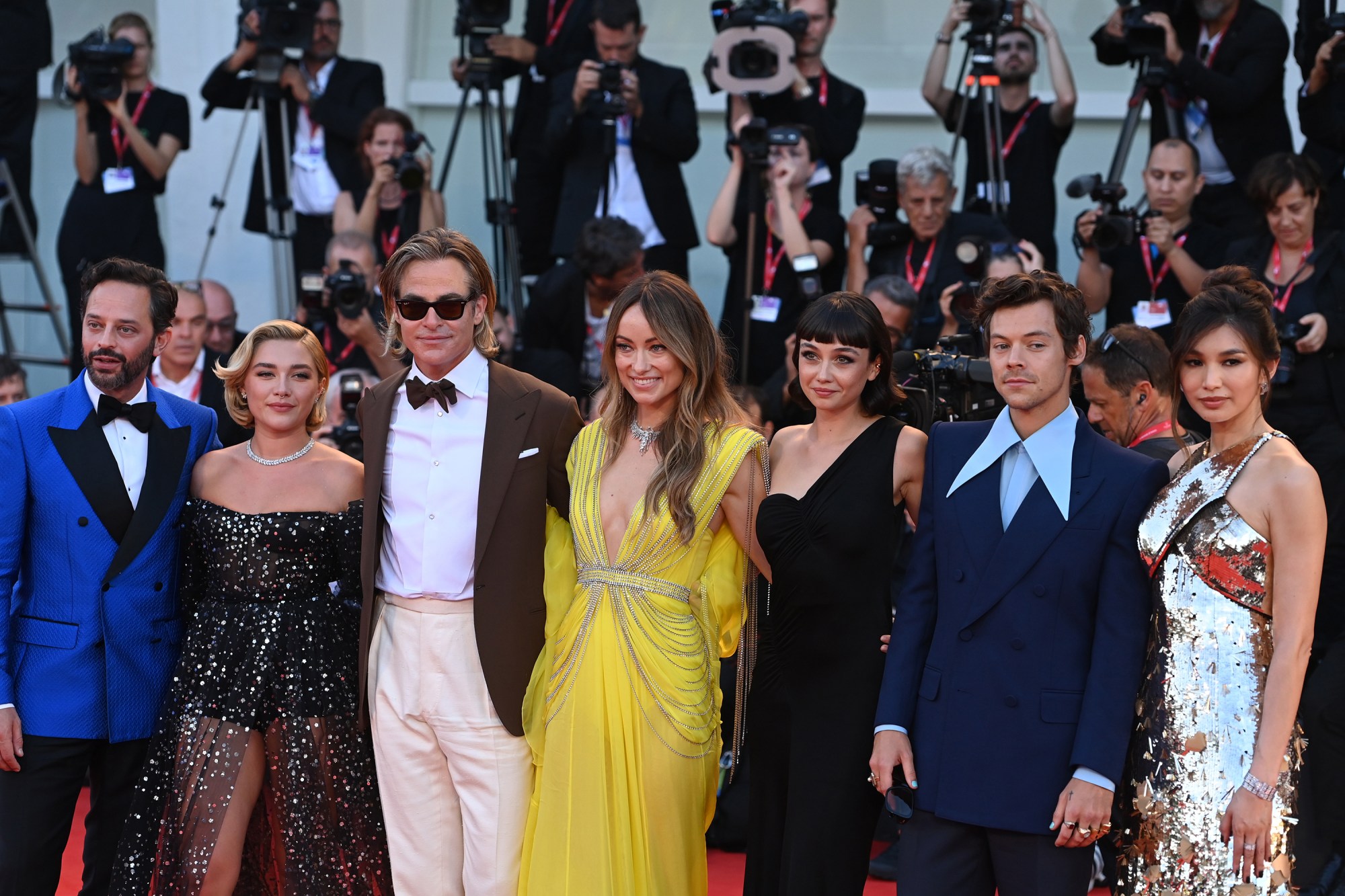
- Festivals
Focusing on What Matters About Olivia Wilde’s “Don’t Worry Darling”
Don’t Worry Darling was on everyone’s tongue at TIFF. The film which premiered at the Venice Film Festival was the target of much discussion and little of it had to do with the film itself.
The saga surrounding the Venice premiere of Don’t Worry Darling, directed by Olivia Wilde, had all the drama of a reality show. Last April, the director was served papers while she was promoting the film on stage at CinemaCon 22 in Las Vegas.
The pop idol co-star, Harry Styles, is dating his director. The lead, Florence Pugh, is said to be in a feud with the director. The same pop-idol singer is alleged to have spat on his co-star at the screening in Venice – denied by all concerned.
The female lead was rumored to have boycotted the Venice press conference. But the director, when asked about Pugh’s absence, explained logically that her absence was due to the shooting schedule of Pugh’s current film, the much-anticipated sequel to last year’s Dune.
But Pugh flew in for the film’s premiere as the director intonated.
And so it goes.
One has to ask, given all the details of the director’s private life the press has salivated upon, how is it that male directors are not subjected to the same invasion? How is it that male directors are allowed to keep their personal lives lurking in the background?
Double standard much?
Which is the very point of Don’t Worry Darling. The film asks: who gets to make decisions about what is best for us? At the Venice Film Festival, Wilde acknowledged the homage of mourning for a romanticized “ideal” society where men and women had stereotypical roles without much leeway for individuality.
Wilde said, “We started writing this film in the era of ‘Make America Great Again.’ We were really questioning what exactly is meant by that. With this film, everything is a metaphor. The paradox of victory is that everything that is beautiful is also sinister. And that’s by design.
“A huge part of why we wanted to tell the story was a reflection about the generations of women that came before ours but unfortunately, also the generation of women that we are in right now, in terms of body autonomy.”
That subversive suppression of individual rights for a glossy perfection and group-think is gripping the world currently but also echoes times gone by.
When asked about the evocation of Hitler’s Weimar speech and the similarities of the constructed city in the desert of Don’t Worry Darling with that of the Manhattan Project, where people were taken to a sparkly place in the desert to work on ideas that resulted in nuclear fusion and obliteration of entire cities, Wilde acknowledged the roots.
“Unfortunately, this world of Don’t Worry Darling was based on a lot of real experiences throughout history. The Manhattan Project was certainly one of them, in terms of a secret organization where women made the agreement not to ask questions. The idea of discretion as a privilege comes very much from that world. And yes, there’s a lot of fascist imagery and references. It’s because we’re trying to talk about power and the abuse of power.”
The imagery of the film is the result of production designer, Katie Byron, and location manager, Chris Baugh, who gained access to the Neutra and Kaufmann houses. Wilde credited them by name, noting, “When we were writing the film, we had an image of Slim Aaron’s Poolside Gossip on the wall, which features the very famous Neutra house, the Kaufmann house; our dream came from that image.”
She added, “We never dreamed in a million years that we’d be able to film there. No film has ever been shot there. But thanks to our amazing production designer, we were able to film inside the house. So it was very surreal because we suddenly found ourselves inside the environment that actually inspired the world.”
As the conference wore down, the director addressed the conversations the press should be focusing on rather than the lascivious gossip. “This film is unfortunately very timely. But it’s also timeless because this has existed throughout history. I don’t think there will unfortunately ever be a time when the idea of controlling someone’s body is not something relevant to be able to fight against. I think we have to continue that conversation.”
“I hope Don’t Worry Darling provokes conversations. I hope it makes people think, and question the system that serves them. But we also want this film to be incredibly entertaining. I believe in Trojan horse films, that on the outside, we want it to be absolute entertainment. And if it allows you to provoke a conversation?”
She continued, “I mean, the film is intentionally provocative. We want to be disruptive. I believe in disruption as a necessary tool in society.
“The women who made this film, we talked a lot about complicity and our role within the patriarchal system. And this is something that we’re all very much involved in.”
And in case people are still chattering about manufactured gossip, Wilde refocused the spotlight on Don’t Worry Darling’s intent. “I didn’t have any interest in oversimplifying this as a feminist parable. I wanted it to be provocative, and allow us to take a good look at our participation in the society that we benefit from.
“And yes, we want women to feel that they are being heard, and we want people to feel that this is a movie that is of our times, and to feel inspired by a heroine like Alice. What Florence created in that character is the kind of revolutionary who’s willing, as Harry said, to sacrifice everything in order to do what’s right. And those are the superheroes I really want to see these days.”

